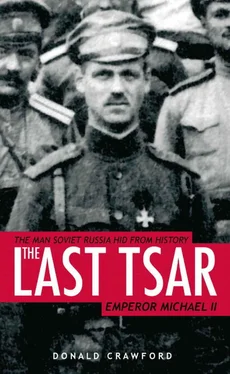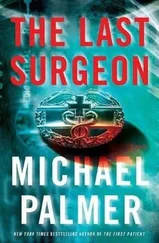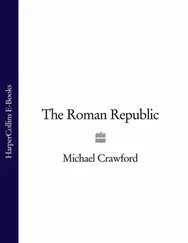By the time Nicholas read that in his study at Tsarskoe Selo it was already too late to hope that the marriage could be kept secret. As he wrote to his mother on November 21: ‘By now everybody knows… In Moscow it is the same; probably the news came from her relations.’ 28
The gossip had also spread far beyond Russia: all Europe was agog, and in England Michael’s cousin King George V was as concerned as anyone else, writing to Nicholas that ‘I am so fond of him that I am in despair that he should have done this foolish thing & I know how miserable you must be about it. What a lot of worries & anxieties there are in this world. 29
At Tsarskoe Selo it was now clear that there was no choice left but to impose the severest punishment on Michael and quickly before the start of the official tercentenary celebrations, scheduled to begin with a great choral Te Deum in the Cathedral of Our Lady of Kazan on the Nevsky Prospekt on February 21. Michael was to be swept away, as a reminder that no one, however high, could defy the Emperor of All the Russias, and think that they could be excused.
On December 15, 1912, two months after Michael’s marriage, the Tsar issued at Tsarskoe Selo an imperial ukase or edict to the Ruling Senate. It read:
Deeming it expedient to establish a guardianship over the person, estate and affairs of the Grand Duke Michael Aleksandrovich, we have considered it advisable to take upon ourselves the chief control of the guardianship and to entrust to the Central Administration of the Imperial Duma the direct control of all estate, personal and real, and also funds possessed by the Grand Duke Michael Aleksandrovich. 30
Two weeks later, on December 30, he issued an imperial manifesto removing Michael from the Regency.
By our Manifesto given on the first day of August 1904, we, in the event of our decease before the attainment of his majority by our beloved son, his Imperial Highness and Heir, the Tsarevich and Grand Duke Alexis Nikolaevich, appointed our brother the Grand Duke Michael Aleksandrovich, to be Regent of the state until our son should come of age. Now, we have deemed it advisable to divest his Imperial Highness, the Grand Duke Michael Aleksandrovich of the obligations laid upon him by our Manifesto… 31
Both the ukase and the manifesto were published for the world to see in the Official Messenger No 2 of January 3, 1913. Two days earlier the same official gazette had announced that ‘Grand Duke Michael Aleksandrovich, Colonel and Commandant of the Chevalier Gardes Regiment of the Empress Marie Fedorovna… is relieved of his command.’ 32
These series of official statements caused a considerable stir, within the diplomatic world as well as in society at large. Sir George Buchanan, the British ambassador, telegraphed the news at once to the British foreign secretary Sir Edward Grey, adding that ‘in the event of no one being specially appointed to act as Regent in place of the Grand Duke Michael the Regency would, as I am informed, devolve by law on the Empress’. 33
In effect, if Nicholas died, it would be Alexandra who would rule Russia. That was a prospect which even in 1913 was unwelcome; Alexandra and her clique at Tsarskoe Selo were not yet hated as they would be, but there was little liking for her in society or in the political classes. When her mother-in-law had been empress, she had ‘considered her chief function was to charm those who came into contact with her; she had every quality needed for doing so and was venerated at court and by the great mass of the people’. 34
In contrast, Alexandra had no interest in charming anyone: her ‘chief function’ was in badgering Nicholas to ‘be firm’ and to show them ‘who is master’. That would bring both of them down in the end, but it was not the end in 1913, though she hoped it would be the end of ‘that woman’ Natasha.
In St Petersburg, even hardened members of society were astonished at the severity of the punishment which, as one observer put it, was ‘as unfortunate as it was unwarrantable’. 35And because Alexandra was judged to be behind this humiliation, sympathy in some quarters swung to Michael rather than to Nicholas. Given the choice between condemning the well-liked Michael and condemning Alexandra, society was more than ready to forgive him if only to have more reason to denigrate her.
At the same time, few could think of anything which would be to the credit of Natasha. Society had cut her dead when she had arrived in the capital eleven months earlier. The runaway marriage seemed its own proof that they had been right to do so. He had been foolish; among those who followed the lead of the the smartest salons, she was unspeakable.
TWO weeks after his runaway marriage, Michael had written to his brother to tell him what he had done and concluded by saying that ‘I know that punishment awaits me for this act and I am ready to bear it.’ 36He expected to be banished, relieved of his command of the Chevalier Gardes, and to have his assets frozen, perhaps for a year or so until the storm had abated. He was by no means the first Grand Duke to have married in breach of the imperial statutes — uncle Paul and cousin Kirill were just two examples of that — and there was always a price to pay, but no other Grand Duke had found himself subject to the kind of public humiliation inflicted on Michael. High society would always know when a Grand Duke had been banished and the reasons for it, but officially these were matters kept within the imperial family, and not something which the ordinary Russian should know about. Romanov prestige was not to be damaged by its private scandals becoming street gossip.
Yet that was precisely what had happened in Michael’s case, and in particular with open publication of the fact that his assets had been placed under guardianship, a step normally reserved for situations where someone was adjudged to be no longer mentally capable of managing their assets themselves. Michael, the order implied, had lost his mind — the fevered view at Tsarskoe Selo in blaming Natasha for it all, but not a view which ought to have been promoted across the whole of Europe.
Understandably, Michael was appalled by that more than by anything else. Indeed, after reading newspaper reports of Nicholas’s actions against him he was so incensed that he could not bring himself to write to his brother even in protest.
When he did so a month later, he explained that ‘it took me some time to get over the guardianship decision, which you had announced for all the world to know. I will never believe that it was your own idea and it is painful to know that you listened to those people who wished to discredit me in public opinion.’ Knowing what was being said, he added: ‘It has already done a lot of harm’. 37The people he had in mind, in particular, were Alexandra and Mordvinov — and what added to his sense of outrage was that it was Mordvinov who had now been appointed to oversee his guardianship, thereby adding insult to injury.
That order, and Mordvinov’s role of servant turned master, continued to enrage him. There would be repeated protests that he did not want ‘this man anywhere near me or my affairs’ 38and that he was not competent to exercise powers which he ought never to have been given in the first place. As Michael said in one of his letters to his brother:
The combination of trusteeship over my estate with the guardianship over my person, without doing anything to protect my fortune, has put me in the position of an imbecile or madman and made my situation totally unbearable. As things are, even a short visit to Russia is impossible for me, for I shall be seen as a man who has been subjected to a humiliating punishment. 39
Michael’s assets were very considerable. The inheritance and savings accumulated by his original trustees until he was twenty-five had provided him with a capital of several million roubles; from the imperial purse he also drew, as did all Grand Dukes, an annual allowance of 280,000 gold roubles, a huge sum in those days. In addition he had substantial earnings, rising to a further one million roubles a year, from farms and factories owned by him across Russia, including, in the Ukraine, the country’s largest sugar refinery. As one measure of the value of all that, a six-seater Rolls-Royce Silver Ghost he had bought in August 1911 had cost him £1,367 or the equivalent of just over 12,000 roubles — petty cash when set against his overall annual income (equivalent to some $20m in today’s monies).
Читать дальше












